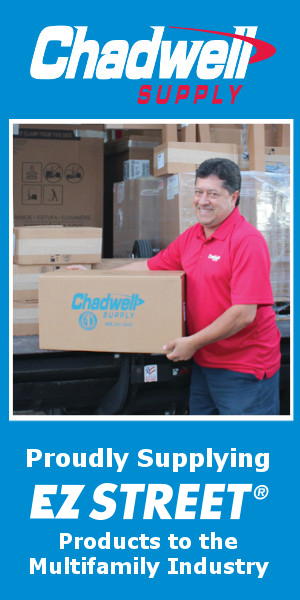From time to time, news will surface that someone got so fed up with a particular pothole that he or she filled and fixed it them self.
George Weir of Escondido has been doing that for three years, but on a much grander scale. The owner of Escondido Asphalt, Inc. (and several other businesses in construction and agriculture) has been putting between $80,000 and $100,000 of company resources to work in each of the past three years on the city’s roads, streets and alleys.
That is volunteer work. Uncompensated. He does it because he wants to improve the city.
“People realize that the condition of our streets is emblematic of our economy,” says the 57-year-old Weir, who founded his business after working for his own father, a teacher, in a part-time driveway seal-coating business. “Potholes resonate with people because they show how far we’ve fallen behind.”
Indeed, the City of Escondido formerly had two trucks dedicated to pothole repairs, but budget cuts reduced that to one. Weir subsequently met with the city council to present his idea of providing crew, truck and materials to address their broken pavement problems.
Not just anyone can voluntarily fix a city’s potholes, of course. You need trucks, crew, asphalt supply and some expertise. But just as important, most cities require you to be insured and have the bonding ability to work in a municipal right-of-way. Weir had all that and a general engineers certification, which is required in many cities as well.
The Escondido Asphalt crews get their orders from the city, which put into service a smartphone application, “Escondido, Report It!,” in May 2011. It streamlines the reporting process, allowing citizens to take a photo of the pothole, which automatically tags it with a GPS location. A traditional reporting system through phone calls and the city website are also used. Those reports are received by Weir’s crews on Thursdays, which they generally put to work on Fridays.
Citizen response to the volunteer pothole repair work is perhaps warmer and more personal than with taxpayer-supported crews. “People come out of their houses with cookies and gifts,” reports Weir. In some cases, members of churches and other organizations have provided their own volunteers to help the crew. As long as the truck and a bonded and insured driver are present, it meets all legal requirements.
Why does George Weir tackle this task with no financial reward?
The answer to the question is painted on the side of the repair vehicle. It says, “Do Something!” with the tagline, “Make your life count.” It’s part of his own philosophy, which combines a faith-based imperatives toward charity with the general philosophy that communities need people who know how to give back for the sake of the common good.
“This town raised me,” says the Escondido native. “Stimulus works from the bottom up, I think. Everybody should do what they can, with whatever they have to give. Our country was founded on the principles of giving back.
“It doesn’t hurt that our businesses are vertically integrated,” he continues, explaining how the elements of pothole repair are all under his collective roofs, so to speak. Weir’s enterprises include Escondido Sand & Gravel and George Weir Asphalt Construction.
The firm began providing free pothole repairs on less-traveled streets in year one, which enabled them to master their pothole repair operation. Since the second year, they have been fixing bad pavement on busier thoroughfares, typically with a three-person crew that can handle a higher demand for safe traffic management.
At least one local business, Champion’s Restaurant, has experienced an improvement in business operations due to the work of the volunteer pothole repair crew. The repairs were actually necessary in the alley behind the restaurant, which enabled food deliveries from the back of the house. Add to that it’s a well-understood fact that when streets in front of a retail business are in good repair, business traffic can increase as well.
How long might Weir’s crews provide this service? “Until the city says stop, we’ll keep doing it,” he says.





